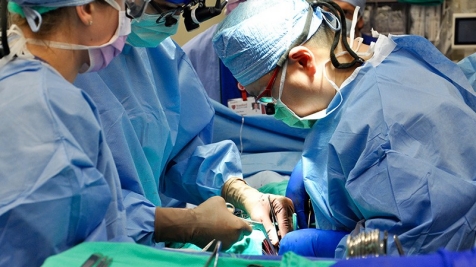
A heart-related medical emergency is usually defined as sudden and abnormal contraction of the arteries that supply the heart with oxygen-rich blood
When the heart muscle contracts abruptly, blood pressure is increased, and there is usually an immediate risk of death. A sudden heart attack is also referred to as a myocardial infarction (MI) and a sudden cardiac death is an irreversible loss of heart function. In a heart attack, a person's body immediately starts pumping blood from the heart to all other organs of the body to provide it with adequate amounts of oxygen.
Some causes of a sudden cardiac death are not yet known. However, researchers are still trying to pinpoint the underlying causes. In a study conducted at the University of Colorado Denver School of Medicine, the researchers found that the risk of sudden cardiac death is associated with genetic predisposition, poor circulation, hypertension, high blood sugar, and poor diet. The study also revealed that sudden cardiac death is likely to occur when the person has no pre-existing medical conditions. The researchers were able to show that those people who have had their hearts operated on in the past, have been diagnosed with certain conditions, and people who have a family history of heart problems are more susceptible to sudden heart attacks.
If you believe you may be suffering from sudden cardiac death, you should seek help as soon as possible. It is vital that the victim receives immediate cardiac care. If this is not done, the victim may not get the medical attention he or she needs and may even die. One of the most common treatments for sudden heart failure is the coronary artery bypass graft (CABG). This surgery, which is often performed after the age of sixty, is used to replace damaged or dying arteries in the heart.
The risk of sudden heart failure increases if the victim already has a medical condition that can cause organ damage if left untreated. These include hypertension, diabetes, hyperlipidemia, kidney disease, atherosclerosis, heart valve disease, congenital heart defects, heart tumors, cardiomyopathy, and atrial fibrillation. When the heart muscle is damaged, the ability to pump blood in and out is impaired.
Coronary artery bypass grafting is a procedure in which a new opening in the chest wall is created using a procedure called angioplasty to repair or replace a damaged or dying coronary artery. Coronary artery bypass grafting does not require surgery or recovery time. If the victim is stable, healthy and has no health problems, this operation can be performed on an outpatient basis. and the procedure can be completed in a matter of minutes.
Some patients may also opt for heart valves made of synthetic material or a more natural material such as silicone or an elastic implant to replace their damaged heart. In this procedure, a person is given a new heart or a replacement heart that will pump the patient's blood but will not change the function of the old heart. The new heart is made by a surgeon who can complete the procedure in one to two hours.
Heart valves are used to treat patients with severe congenital heart defects and heart valves. They can also be used to replace heart failure or to help people who have had heart surgery and are on dialysis.
Heart valves perform the same function as heart valves, which are made up of cartilage in the body, so the body needs to replace damaged valves over time, and sometimes surgery is required to keep the valves from separating. Although most patients can continue to work with their current medications, the patient may need to take certain medications to prevent the disease from recurring.